With one of the largest campaigns ever, the Greens came within 1.6% of winning Wills from Labor — with a record 26% swing in multicultural and working class northern suburbs. But then were outspent 3:1 in the final stretch. Here’s what Samantha Ratnam and Cat Nadel share about lessons learnt, organising community, and why the 2028 campaign has already started.
We could feel something special
SAMANTHA RATNAM — In the months since the federal election and our narrow loss here in Wills, there’s hardly been a day that’s gone by when I haven’t been stopped by someone on the street wanting to commiserate with us. Most often, people will speak about how sad they are that we didn’t win Wills, but offering to help the next time – because now they know what’s at stake and how hard it is to upend the status quo. While we set about making this campaign as big as possible, we hadn’t anticipated just how deeply felt it would be for the community as well.
Wills is one of the most progressive electorates across the country according to the ABC’s Vote Compass. From young people, renters and empty-nesters in the south, the electorate reaches through North Fitzroy and Brunswick, up to Coburg and Pascoe Vale in the centre, to Fawkner and Glenroy in the north. These areas are growing and changing with more cultural diversity and families, but have been historically neglected and under-resourced.
The Wills community has incubated leaders of the climate, environment, social justice and peace movements. We care very deeply about the world and we are proud of our diversity. All the issues the nation is grappling with are felt here personally as well. In knocking on more than 85,000 doors, we heard from families that it’s much harder to make ends meet. We heard from parents worried about the climate their children and grandchildren will inherit. Young people told us about being disenchanted with the system that has given them less opportunity than generations before and locked them out of affordable housing. We stood in solidarity with people seeking asylum and refuge who felt abandoned by Labor. And we bore witness to the relentless grief and heartbreak so many in our community are experiencing as we watch the genocide in Palestine, while our governments refuse to act.
We could feel something special in the final weeks of the campaign. There was a focus and an energy around the campaign. We had a sense that even as life gets harder and scarier, our community was on the cusp of finding and proving our power. Our community was mobilised for change, but then came the election of fear.
Losing teaches you more than anything else
CAT NADEL — In an election that saw bruising losses for our party, the Wills campaign to elect Samantha Ratnam came the closest of any lower house seats to claiming a new victory for the Greens.
We built the biggest field campaign in Victorian Greens history, we broke new ground with multicultural and working class communities to the tune of 26% swings in the north of the electorate, but we still fell short.
“Losing teaches you more than anything else. You’re a real Green now Cat!” This is what Samantha said to me on the night we conceded Wills. And as usual, she was right.
The warning signs emerged in the final weeks of the campaign when Labor started outspending us 3 to 1 on digital advertising. Our volunteers told us they were being served a “Sam Sandwich” of Labor ads either side. We got a taste of what it looks like when your opponents realise you might win, and mobilise their bottomless resources against you.
As we reflect on the campaign and ask ourselves hard questions about the future, we offer these lessons from the Wills campaign about what it looks like to build genuine community power, and what it might take for organised people to finally beat organised money and secure that last 1.6%.
Winning starts the day you lose
SAMANTHA RATNAM — It’s really hard to win federal lower house seats. But what happened in Wills, despite the narrow loss, should give us all hope. We are on the cusp of winning it and we now know what it takes. But we can only win it if we take the right lessons and stories from this election.
Every election we tell ourselves a story about what happened. It’s important that we do – to make sense of what’s happened. But if we take the wrong stories away, they become the mythology of our own creation – and we are destined to miss out.
I won’t forget that moment on election night when I spoke to Cat about the lessons from loss. It was the first lesson I learnt when I joined the party in 2009.
As the Victorian Greens were deciding their target seats for the 2010 federal election, I was hearing from branch members – many of whom had been involved in building the party over many years – about how close we had come in 2007 to both winning Melbourne and breaking through in the senate.
It was now 2010 and the party was laser focussed. It was extraordinary to be a part of. All the party was talking about was how to be as disciplined as possible to send resources to Melbourne and help the senate vote. The loss in 2007 had lit a fire amongst our members – no one wanted to come so close to victory and miss out again. And I came to learn that the Victorian Greens campaign to break through in 2010 – actually began in 2007.
Could 2025 be the beginnings of our 2028 victories? It could be if we take away the right lessons from what’s just happened.
Greens Iftar – March 2025
The Swirl: Building a campaign strategy and culture that can get to scale
CAT NADEL — First, I think we should start with what went right and why we got so close.
To me it boils down to three things. 1) A candidate and story that resonated with the community and inspired hundreds of volunteers to join our campaign. 2) A strategy and culture that was built to scale. 3) A commitment to building deep, culturally respectful relationships that empowered and enabled community leadership.
Sam, you were the perfect candidate for Wills. The community knew you had been fighting for them on council and in Parliament for many years. And when you took a risk and gave up your seat in the Victorian Parliament, you inspired hundreds of volunteers to take a risk on you and devote as many hours as they could to the campaign. Your integrity and courage shaped our communications strategy and this resonated with volunteers and voters alike.
Oskar Summers Dixon, our lead organiser, often talks about something he calls “The Swirl™”. It’s that moment when a campaign takes on a life of its own. It’s when you’ve knocked on a record breaking number of doors, have put up over 1,000 placards and aren’t letting your volunteer team put up more, because you need them for polling day. It’s when people are walking in off the street asking how they can vote for Sam, or make a donation, or if you’d like a gift of 300 lemons? It’s when the campaign has grown beyond the number of relationships any staff team can hold.
From investing in shared strategy development with the branch, to running regular strategy nights for field leaders, to always sharing our goals and values with new volunteer leaders, we were able to grow to a historic size, without compromising our strategic alignment. We shared our intentional culture of being outward facing and welcoming, encouraging more leaders and not more work, being mission focused and grateful for feedback and ideas. We reached The Swirl™ by trusting that everyone involved in our campaign knew and was able to deliver the plan in line with our goals and values.
We also had the benefit of incredible staff organisers, who we invested in hiring early, a resource intensive model we copied from the Griffith 2022 campaign. I think this investment paid off in the scale and impact of our field campaign, but time has taught us that we needed much more in our budget to match Labor’s advertising machine.
The largest swing to the Greens in the country occurred in Fawkner, a working class northern suburb where 37% of people identify as Muslim. This is not an accident. It was a deliberate strategy that focused on trust, autonomy and cultural respect. We worked hard to build the trust of this community, inviting community leaders in to shape and lead the strategy. Sam and the party’s commitment to consistently speaking up for Palestine and against our Government’s failure to sanction Israel and stop the arms trade, along with fighting for deeply felt issues like easing cost of living, led to Muslim Votes Matter and Vote Palestine Wills endorsing Samantha, and joining the campaign.
It was inspiring to see local people stepping up to lead door knocks in Arabic, Turkish and Urdu, speaking to their neighbours not as Greens volunteers but as community members, connecting on shared values. It was these door knocks that solicited the most valuable feedback about fears and tensions we needed to navigate and helped us work with multicultural communities in an authentic way. And it paid off at the ballot box!
For those of us who want to see the Greens continue to become a party that can win the support of working class communities, Wills is exactly the kind of seat we need to win first. It bridges the progressive south with a working class north. It could prove we can stick to our values and win new voters without losing the faithful. If we can land messages, policies and candidates that excite and inspire communities as diverse as this electorate, then we’ll be a party that could one day win government.
Okay, I’ve talked about the good stuff. Back to you Sam to talk about the harder lessons!
Lessons in losing: Some questions we are asking ourselves in the wake of coming within 1,600 votes
SAMANTHA RATNAM — After 15 years, 14 state, federal and local government elections – 7 of which I’ve contested as a candidate, the biggest lesson I’ve learnt is that we lose elections when our ambitions exceed our ability to resource them. As Cat so rightly says, to beat organised money, we need organised people.
We’ve also learnt that the success of your campaign is relative to the size of your opponent’s campaign. When the status quo sees you’re a threat, they will try to crush you. In 2016, we achieved a 10% 2PP swing in Wills with a quarter of the budget we had in 2025. So why doesn’t quadrupling your budget quadruple your swing? It’s because the closer you get to winning, the harder it gets to swing votes. And that’s often because your opponent fights harder the more they think they are going to lose.
Labor outspent us in 2025 on visibility and advertising (2:1). In 2016, they didn’t really have a campaign because of how safe they thought the seat was.
We didn’t anticipate the size of Labor’s spend against us this time. It’s a mistake we won’t make again. Our field campaign helped us achieve swings in the centre and north of the electorate. Our messaging, massive doorknocks and people power helped shift the hearts and minds of many. And the lesson here is that we couldn’t have got so close without this Herculean people-powered effort. We had to throw everything at it to nearly get there!
Labor’s advertising spend suppressed our vote in the south – where they targeted Greens swing-voters through mass advertising that amplified the threat of Dutton and implied falsely that voting Greens would help elect him. We couldn’t match this spend and didn’t land a message strong enough to counter this narrative.
While we need to keep growing our vote across the state and country and know we can’t maintain our senate vote without it – it’s hard to win lower house seats without a mass concentration of resources and people power. In a resource constrained environment, we have to be strategic about where we direct our resources.
As we contend with the 2025 result and admit that there is no such thing as a safe seat, will we need to go into 2028 as focused and disciplined as the Victorian Greens were in 2010?
We have to be able to tell our own story
CAT NADEL — In this election, Advance was funnelling millions of corporate dollars into attack ads about us, and the media was studiously repeating Labor’s framing of our Parliamentary negotiations for better policy as “blocking” their lackluster attempts to pass their worse-than-nothing housing and environmental reforms. In this environment, we struggled to get our own point across.
Something that came up in our debriefs was that we are always telling our story in relation to the major parties. We are “keeping Dutton out and getting Labor to act”. But in an election where Labor’s theory of change was very clear to voters, “Vote for us to keep Temu Trump out”, ours wasn’t strong enough to make voters believe that the Greens could solve the urgent problems they faced.
Maybe we need to get more real about how and why the systems of government continuously fail every day people? And just how deep the rot goes. Which also explains why they try so hard to crush you when they sense you’re on the verge of building real power. Max Chandler-Mather’s recent article makes a good start on this.
When the major parties are not just beholden, but deeply committed to pushing the interests of big business, it takes power to a degree that the Greens have never had to take them on. But we are working to build it.
The Greens theory of change as a party and movement is to build enough power both inside and outside of Parliament to tip the scales. There isn’t really a short cut. I think that’s what we learnt in the Wills campaign. How do we more effectively communicate this and keep taking voters on this journey with us?
We’ll spend the next 3 years building outside power. That means continuing the deep conversations, showing up for the communities, helping each other where our government falls short and living our theory of change. We’ll keep holding Labor to account every time they approve a new fossil fuel project, attack refugees, tear down public housing or provide political cover for Israel’s genocidal actions. We’ll do it collaboratively and with the leadership of the communities and volunteers who have already proved their power this election.
So where to from here?
SAMANTHA RATNAM — One of our campaign volunteers Steph Partridge recently described what the mood on the ground here in Wills feels like after the election: “we didn’t lose Wills, we just didn’t win this time”. Community members still come up to me to say “well done, great campaign, and we are so sad the Greens didn’t get over the line this time”. But they also say that they didn’t know how hard it was to win, so they will be there to back us in even more in the future.
Our victories as the Greens have always been borne from our losses. We enter this next chapter in Victoria hungry, galvanised, disciplined. And ready to win.
* * *
Samantha Ratnam was the Greens candidate for Wills and is the former the leader of the Victorian Greens (2017-2024), serving as a member of the Victorian Legislative Council in the Northern Metropolitan Region. Prior to this Sam was a councillor and mayor for the City of Moreland.
Cat Nadel was the Greens Campaign Manager for Wills. Cat is a campaigner and community organiser working across climate, economic and social justice. She grew up on the banks of the Maribyrnong River, on Wurundjeri country, and still lives and works in Naarm/Melbourne.
Feature image courtesy of Samantha Ratnam and Cat Nadel from the 2025 Wills Campaign. Greens Iftar Dinner in Coburg courtesy of Simon Aubor.
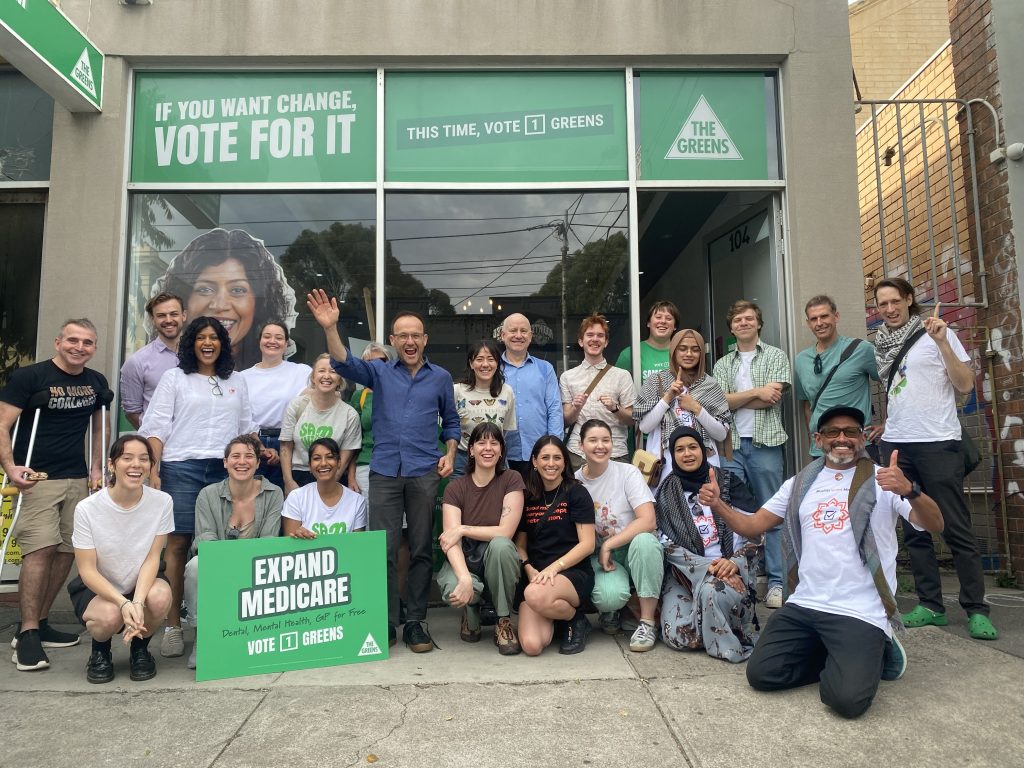
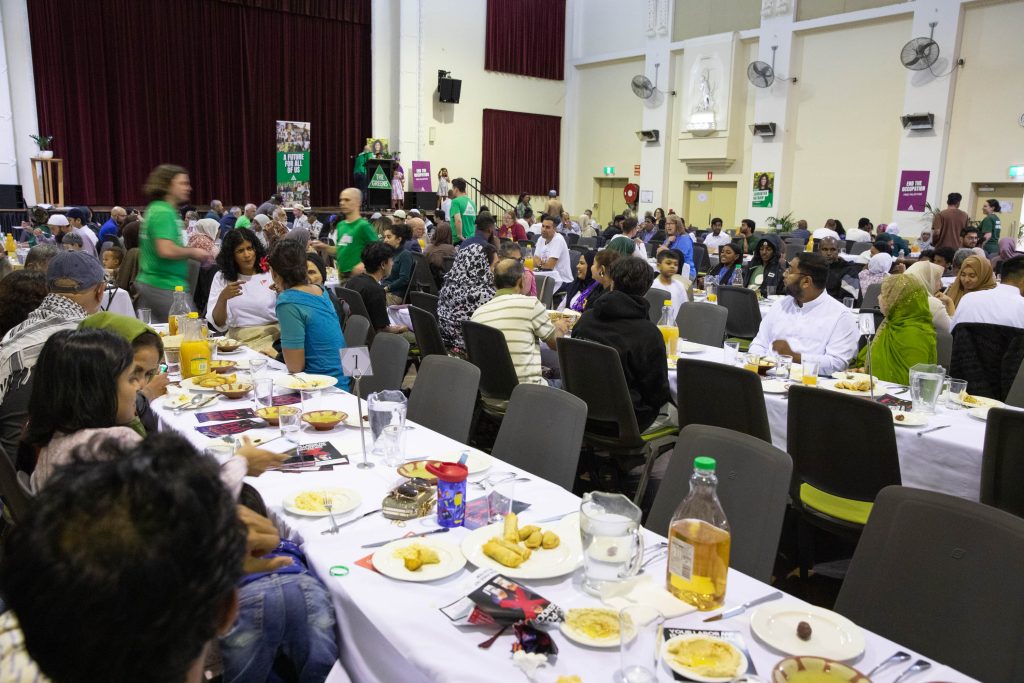
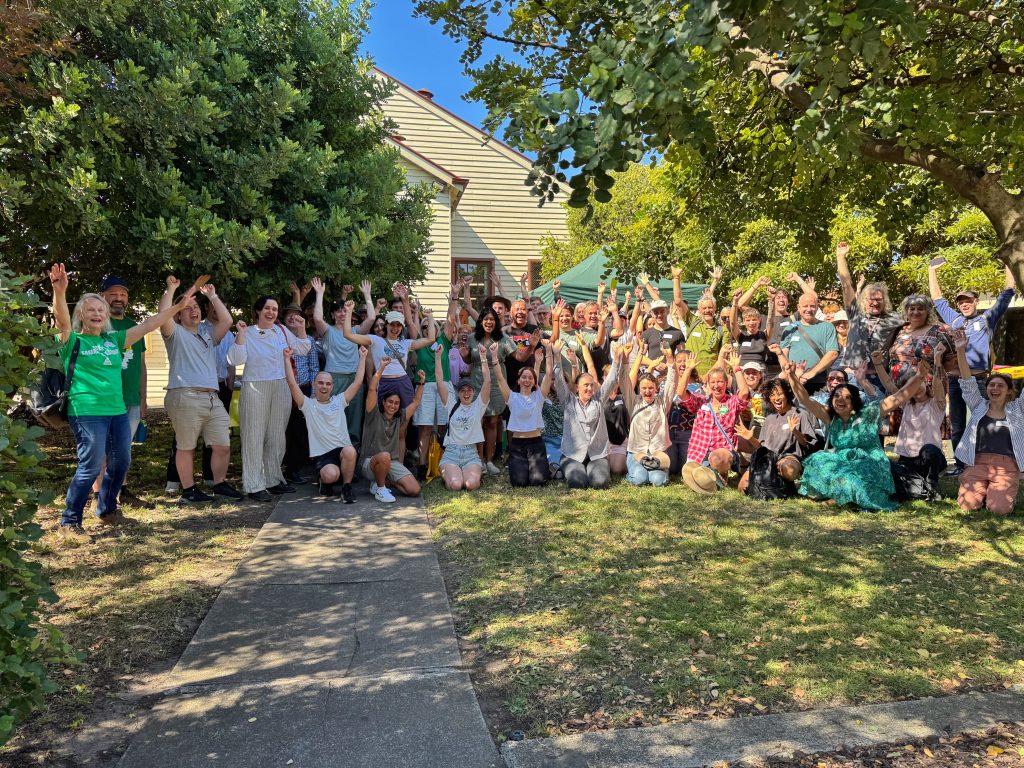
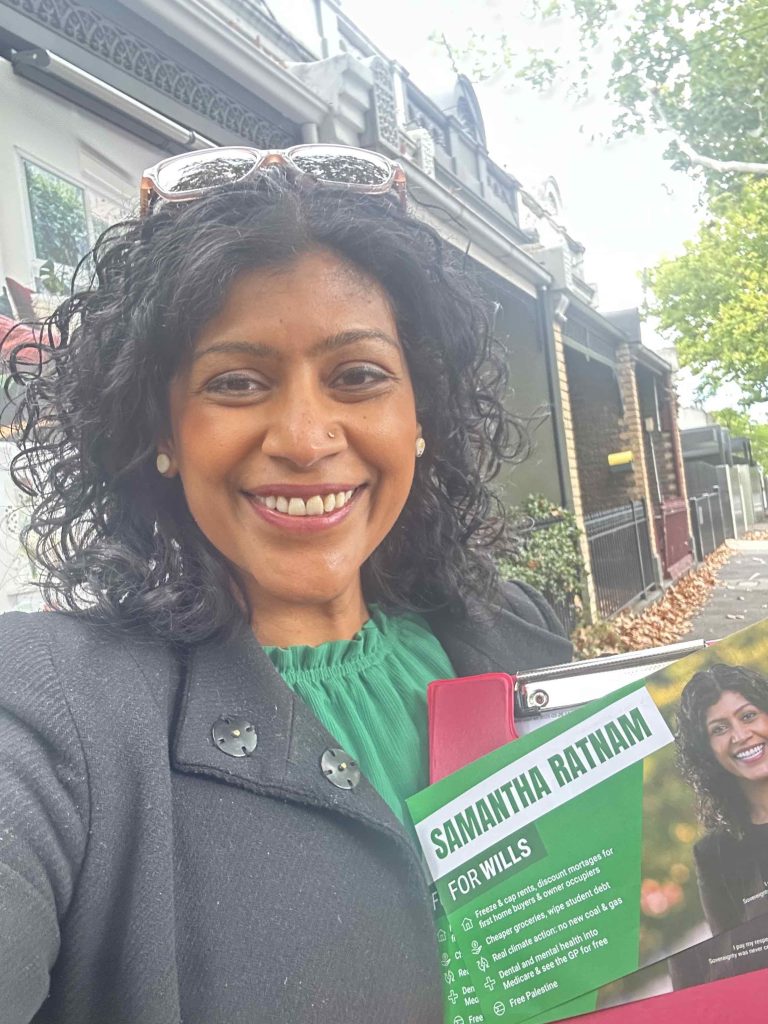
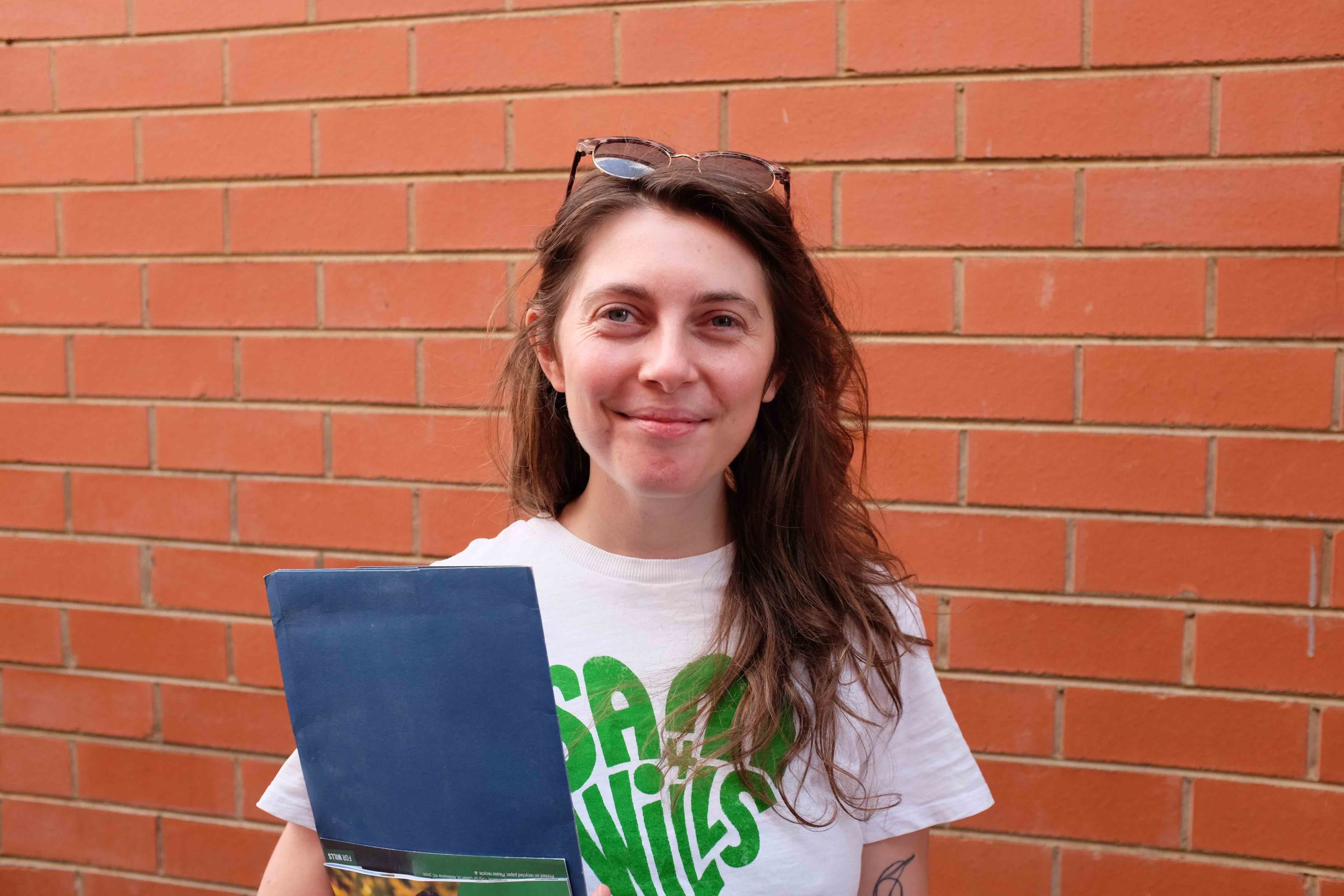
This is such a beautiful article. I have come back to the final line since reading it; “Our victories as the Greens have always been borne from our losses. We enter this next chapter in Victoria hungry, galvanised, disciplined. And ready to win.” Thank you for writing this!
Yes I found the article both inspiring & insightful. Thanks. The Labor/National/liberal repetitive memes about the Greens, are put downs, negative, whilst quickly answering those towards the end of the campaign if digital perhaps is possible? Subverting for ‘blocking’, could be answered with ‘we (greens) improve & you block! ‘ or something similar? ‘peace helps us all’, ‘respect our neighbours’….? Enabling in the budget for this spurt of advertising?